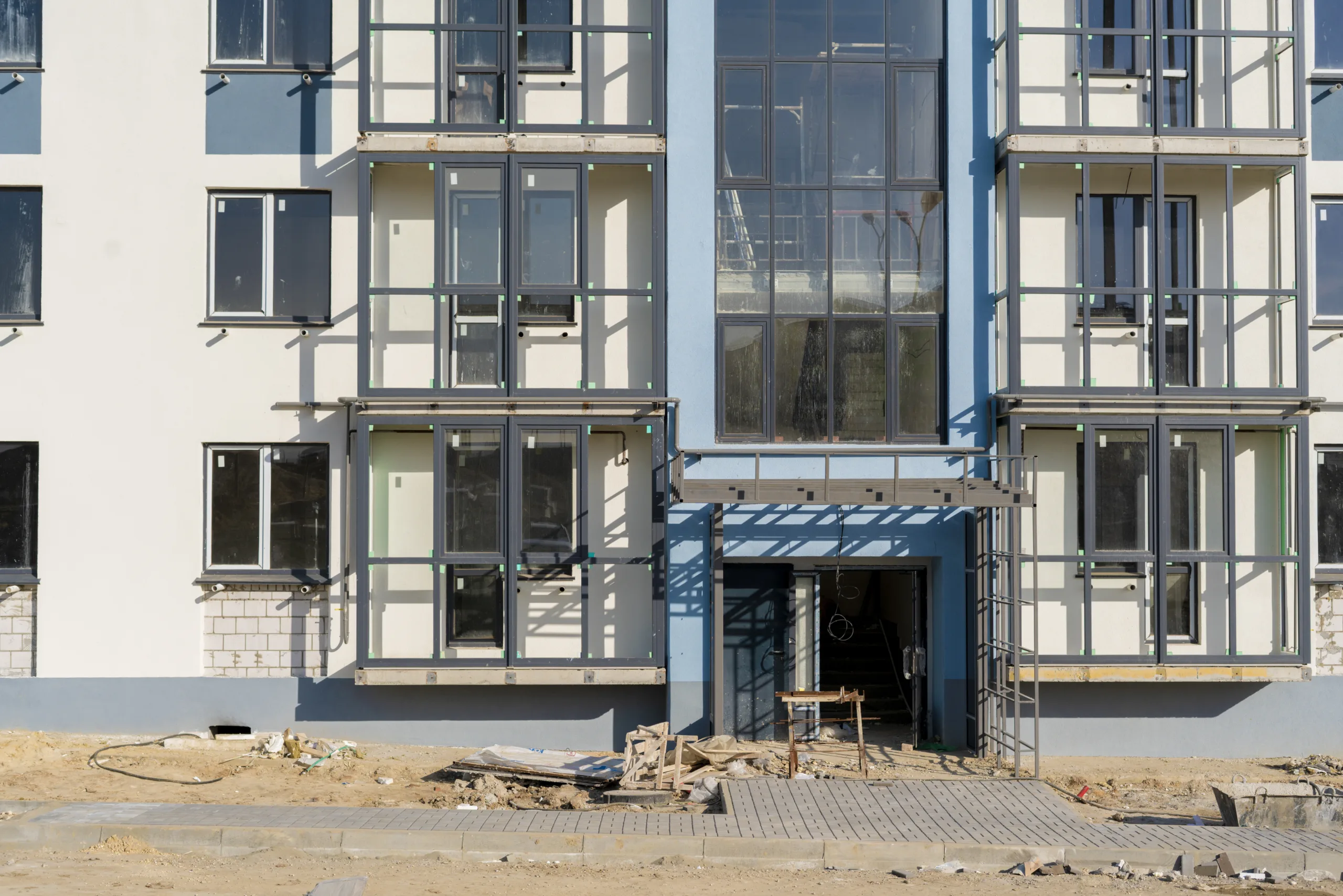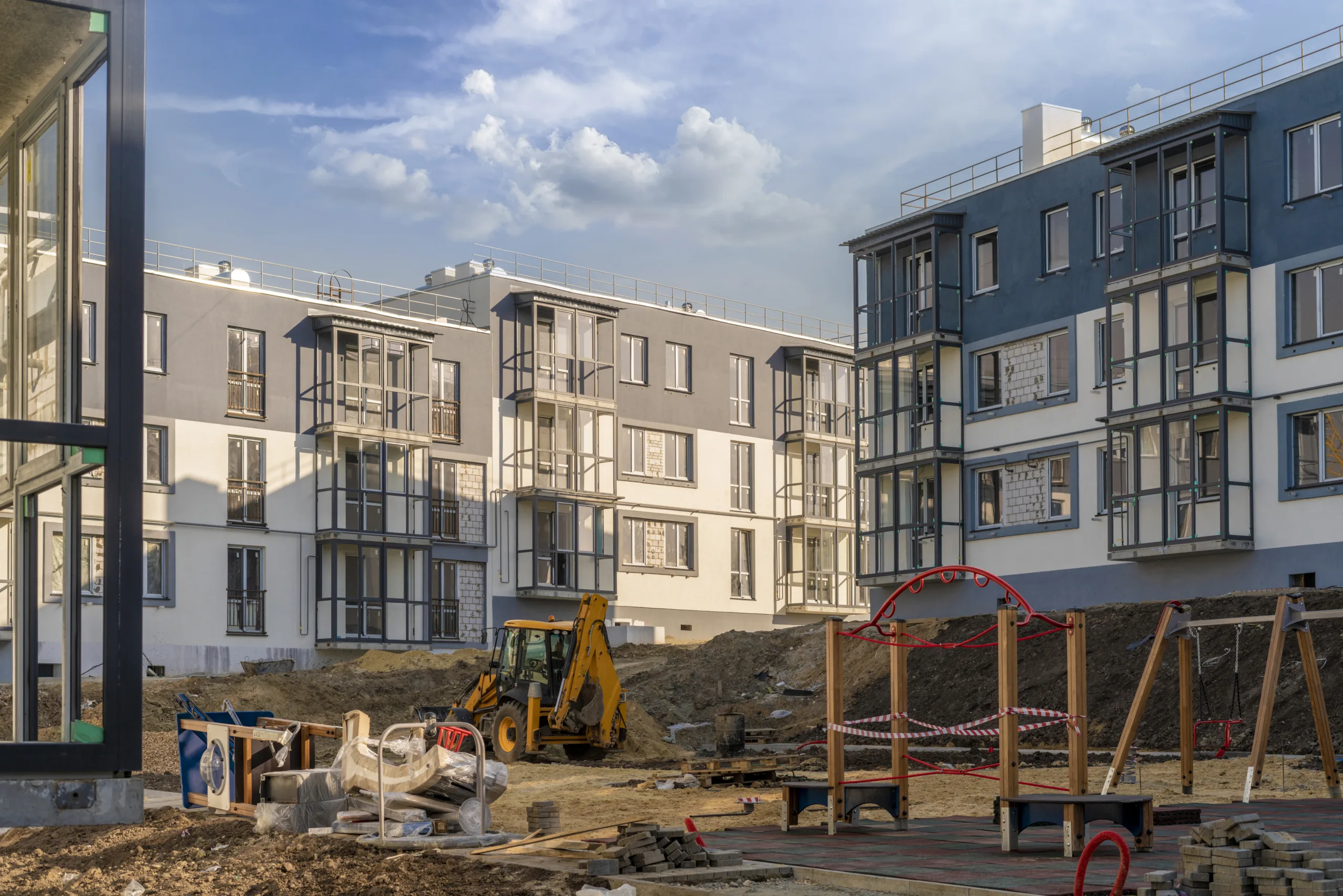Affordable Housing Becomes LA’s Hottest Real Estate Play
Cutting red tape is changing the housing game in LA, and developers are taking note.
Good morning. In a surprising twist, affordable housing has become the hottest ticket in Los Angeles real estate. A city policy slashing approval times is drawing in developers who typically stick to market-rate projects.
Today’s issue is brought to you by RealAI—unlock brand new tenant health metrics for multifamily.

🎙️This Week on No Cap: Winston Fisher joins to talk about turning a 100-year-old firm into the creative force behind AREA15.
Market Snapshot
|
|
||||
|
|
*Data as of 11/17/2025 market close.
Policy Pivot
Affordable Housing Becomes LA’s Hottest Real Estate Play
A fast-track city policy has made 100% affordable housing the unlikely darling of Los Angeles developers.
Speeding up supply: Since launching ED1 in late 2022, LA has seen over 42,000 affordable units proposed—double the prior three years. The policy cuts approval time to 60 days for projects serving low-income households, with 75% already approved. Even market-rate developers are joining in.
New players enter: Passo, launched by out-of-state developers to capitalize on ED1, has completed one project and has 600+ units in the pipeline. The policy’s time and cost savings are key draws. Even market-rate firms like Generation Real Estate tried building affordable, but called it a “one and done” due to operational hurdles.
Not all smooth sailing: Despite early momentum, financing remains a challenge as high rates and subsidy cuts slow progress. Some developers are selling entitled sites, while new city limits—like excluding single-family zones and capping incentives—have weakened ED1’s impact.
Broader policy shift: LA’s policy reflects a broader trend as cities ease rules to boost affordable housing. California rolled back environmental reviews, and NYC passed measures to speed approvals. There's also a push to make ED1 permanent.
➥ THE TAKEAWAY
LA proved one thing: When the red tape gets cut, the affordable housing pipeline surges, even from unlikely players. But streamlined approvals alone won’t fix a market still constrained by financing, political pushback, and operational challenges.
TOGETHER WITH REALAI
Bulletproof your underwriting
RealAI reveals the people behind your rent roll—including income levels, FICO scores, spending habits, and more—so you can price risk precisely and stop guessing. Powered by real-time consumer data across 250 million households, modeled for every U.S. apartment building.
-
Benchmark tenant quality for any U.S. apartment against nearby comps
-
Understand the real-time trends in tenant financials
-
Complete analysis in seconds
Billions of data points. Instant access. Completely free to use.
*This is a paid advertisement. Please see the full disclosure at the bottom of the newsletter.
✍️ Editor’s Picks
-
Operational strength: REITs delivered strong Q3 2025 performance, with solid FFO growth, stable occupancy, and low-leverage balance sheets positioning the sector for opportunity in 2026.
-
Capital stress: A $930B wave of maturing CRE debt in 2026 is set to trigger more foreclosures and distress, as rising rates and mezzanine exposure strain capital stacks.
-
Shutdown hangover: The 43-day government shutdown created major delays in affordable housing deals and battered the hotel sector, with fears of another disruption in early 2026.
-
Post-election pop: Despite political jitters over Mamdani, major real estate CEOs report record office leasing and long-term corporate commitments showing no signs of an exodus.
-
Grim graduations: The Class of 2026 faces the toughest job market in five years, as hiring freezes, layoffs, and AI disruptions squeeze entry-level opportunities across major industries.
-
Under pressure: About 1 in 4 U.S. households still live paycheck to paycheck, as inflation continues to outpace wage growth for lower- and middle-income Americans.
🏘️ MULTIFAMILY
-
Income focus: With national rent growth in the red, multifamily investors are rethinking underwriting strategies, focusing less on upside and more on risk, resilience, and realistic returns.
-
Supply slowdown: Austin apartment completions are set to fall by over 50% in 2026 after record growth, easing pressure on occupancy and rent declines.
-
Dumbo deal: A Carlyle Group affiliate sold a luxury rental at 181 Front Street in Brooklyn’s Dumbo to Hubb NYC for $85M.
-
Tax rush: Brooklyn apartment deliveries doubled this quarter as developers rushed to complete luxury projects ahead of expiring tax incentives.
🏭 Industrial
-
New record: Blackstone set a record with a $3.46B data center refinancing as AI demand boosts valuations and lender confidence.
-
Data alliance: BlackRock’s infrastructure arm and Spain’s ACS formed a $27B joint venture to develop global data centers.
-
Bandwidth strain: As Big Tech races to expand AI capabilities, a national shortage of fiber infrastructure is emerging as a critical chokepoint.
-
Paper potential: A closed International Paper mill in Savannah may attract shipbuilders due to its rare deepwater access and rail infrastructure.
-
Cold capital: Cerberus and Provender Partners recapitalized 1.7M SF of cold storage facilities across major U.S. markets in deals with Artemis and Heitman.
🏬 RETAIL
-
Holiday hesitation: Consumers across income brackets are pulling back as economic uncertainty, job market strain, and student loan repayments push even wealthier shoppers toward discounts.
-
Shapewear surge: Kim Kardashian’s Skims hit a $5B valuation after raising $225M to fuel global brick-and-mortar expansion.
-
Return to retail: Institutional investors are returning to retail real estate, drawn by limited new supply, rising returns, and strong fundamentals in fast-growing Sun Belt markets.
-
Campus commerce: Retailers are increasingly targeting college towns and Gen Z hotspots with campus-adjacent stores and influencer pop-ups to build early brand loyalty.
-
Popup trends: Marine Layer is leaning into experiential retail this holiday season with creative, hands-on customization pop-ups in San Francisco and New York.
-
Center comeback: Continental Realty Corp. has acquired the partially vacant Commons at Willowbrook in Houston, betting on suburban retail strength and continued migration-fueled demand.
🏢 OFFICE
-
Debt spiral: Worldwide Plaza will be auctioned after defaulting on $1.2B in debt and losing 80% of its value.
-
Spec bet: Menashe Properties doubled down on Chicago offices, betting on spec suites and rising market sentiment to drive faster lease-ups.
-
Commercial dip: Chicago's Loop saw commercial property values drop 7.2% in 2024, shifting nearly $470M in tax burden onto homeowners.
-
Quality first: Zurich North America is relocating to Willis Tower, downsizing its Chicago footprint by 50%.
-
Recovery mode: After bankruptcy and restructuring, WeWork is expanding again, adding space in Toronto and reporting strong occupancy gains across Canada.
🏨 HOSPITALITY
-
Profit driver: While hotel room revenues remain sluggish in 2025, food and beverage operations are driving growth and profitability, especially at luxury and resort properties.
-
Luxury loss: Anthony Scaramucci’s Virgin Hotel in New Orleans faces a fire sale after its value was slashed by over 50%, leaving investors in his Opportunity Zone fund staring down a total loss.
-
Succession plan: Virgin Hotels is replacing CEO James Bermingham after a growth-focused tenure that added four new properties to its global portfolio.
📈 CHART OF THE DAY

Multifamily NOI declines with property age, making static underwriting assumptions a risk for overvaluation.

You currently have 0 referrals, only 1 away from receiving Multifamily Stress Test Model.
What did you think of today's newsletter? |




















